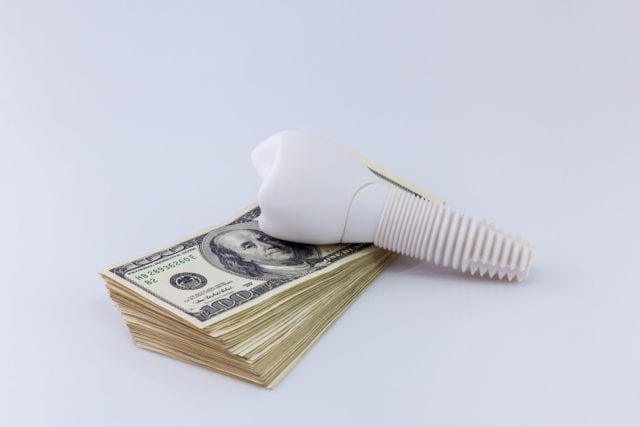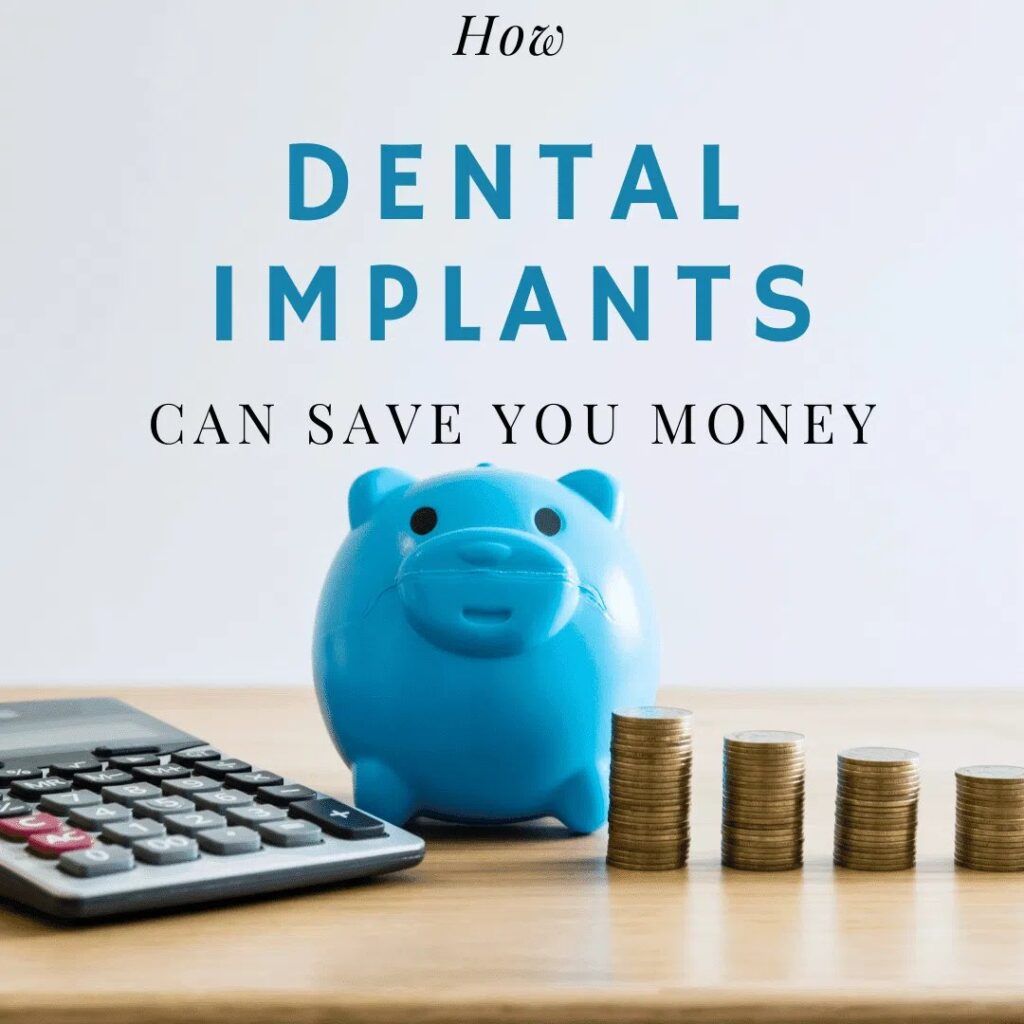When considering dental implants, one of the most common concerns people have is the cost, especially when they compare the cost of dental implants to other tooth replacement options. Looking at the financial cost alone, dental implants can range anywhere from about $1,000-$3,000 per tooth on average. This number will, of course, depend on a range of factors such as your implant dentist, their location, and the amount of work that needs to be done.
However, while most people define cost in terms of the amount of money it will take to get dental implants, this is only part of the equation. When considering the true cost of dental implants, you must also consider the benefits of dental implants, how they compare to other tooth replacement options, and how long they last. Even though dental implants have a higher upfront cost, these other considerations actually prove the dental implants save you money over time.
At this point you are probably wondering how dental implants can save you money over time, especially since they are one of the more expensive tooth replacement options. Well, here are a few ways that dental implants actually save you money:
Prevents Future Dental Issues
Teeth that are severely damaged or decayed can cause a range of problems if they are left in the mouth untreated. By replacing damaged or decayed teeth with dental implants, you can prevent future complications. Additionally, replacing missing teeth is also important because the gaps left by missing teeth can cause the adjacent teeth to shift in position. The opposing teeth may also grow too long since there is no longer a tooth to prevent this from happening. In both cases, your bite can change and can place additional strain on the jaw joint. Constant strain on the jaw joint is detrimental to jaw function and can eventually lead to temporomandibular joint disorder. As you can see, there are a range of dental issues that dental implants can help prevent.
Gets it Right the First Time
Out of all the various tooth replacement options, dental implants have one of the highest success rates. In fact, about 97% of dental implant procedures are successful. When dental implants do fail, however, this is usually due to a lack of proper follow up after the procedure. What this means is that as long as you follow all your implant dentist’s instructions, you have a very good chance of having your implants heal properly. Having a successful treatment the first time around means less time and money are spent on correcting post-operative complications.

Rarely Require Replacement
Once your dental implant has completely healed and your implant dentist has deemed the procedure successful, your implant will usually remain in your jawbone for at least 20 years, although there are cases where dental implants have surpassed even that. When compared to other tooth replacement options, such as dental bridges or dentures, dental implants are by far the longest-lasting option. However it is important to note that the attached dental prosthetic may wear out faster than the implant itself.
Saves You Additional Procedures
Although the attached dental prosthetic may wear out faster than the implant itself, replacing an implant-supported prosthetic is both less expensive and less invasive than replacing other types of prosthetics. For example, a traditional dental bridge supported by natural teeth can be used to replace a missing tooth, but the natural teeth may require additional preparation before a new bridge can be placed. Additionally, if one of the natural teeth supporting the bridge becomes decayed or damaged, this may result in needing to replace the entire restoration. Dentures will also need to be replaced every so often since the shape of your jaw will change as the bone mass deteriorates from lack of stimulation. Not only will you need to endure extra procedures, but these procedures will cost you time and money. With dental implants, on the other hand, you will only need to replace a prosthetic about every 10-15 years.

